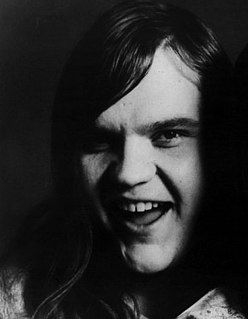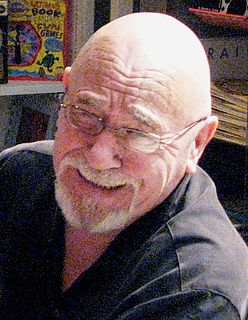A Quote by Adrienne Rich
When the landscape buckles and jerks around, when a dust column of debris rises from the collapse of a block of buildings on bodies that could have been your own, when the staves of history fall awry and the barrel of time bursts apart, some turn to prayer, some to poetry: words in the memory, a stained book carried close to the body, the notebook scribbled by hand--a center of gravity.
Related Quotes
The thought must have its own center of gravity; it cannot just be either here or there. We must find this center of gravity. It is the same for the body; if it is not centered, no movement will be possible. It is the same for the feeling. These Movements are designed to enable us to pass from one center of gravity to another; it is the shift that creates the state. The gesture, the movement, is what is important, not the attitudes.
The same law takes place in a system, consisting of many bodies, as in one single body, with regard to their persevering in their state of motion or of rest. For the progressive motion, whether of one single body or of a whole system of bodies, is always to be estimated from the motion of the center of gravity.
See yonder thin column of smoke curling up through the woods from some invisible farmhouse, the standard raised over some rural homestead.... It is a hieroglyphic of man's life, and suggests more intimate and important things than the boiling of a pot. Where its fine column rises above the forest, like an ensign, some human life has planted itself,--and such is the beginning of Rome, the establishment of the arts, and the foundation of empires, whether on the prairies of America or the steppes of Asia.
Prayer is like practicing the piano or ballet or writing: you have to bring your body for a very long time, in spite of your body’s frailties and conflicts and general revolt, and then one day your body is not separate any more. You’ve in a sense become the piano or the dance or the word or the prayer. The prayer is in your heart. The prayer is your heart.
The methods by which men have met and conquered trouble, or been slain by it, are the same in every age. Some have floated on the sea, and trouble carried them on its surface as the sea carries cork. Some have sunk at once to the bottom as foundering ships sink. Some have run away from their own thoughts. Some have coiled themselves up into a stoical indifference. Some have braved the trouble, and defied it. Some have carried it as a tree does a wound, until by new wood it can overgrow and cover the old gash.
The advice I continually give to young writers is this, "Learn to paint pictures with words." Not just once upon a time, but ... In the long secret dust of ages, beneath a blue forgotten sky, where trade winds caress the sun bleached shores of unknown realms ... See, as much as there are words in poetry, there is a poetry in words. Use it, stay faithful to the path you have set your heart upon and follow it.
H.P.Lovecraft could've been trying to do a Marx to Hegel, that kind of thing, in other words, turn the thing upside down and crawl around inside it. But, look, the guy was eating poorly, he had like a quart of ice cream a day. He was suffering constantly near the end. He wasn't concerned with his body at all, not the way we're concerned with our bodies nowadays.
Wish you could turn off the questions, turn off the voices, turn off all sound. Yearn to close out the ugliness, close out the filthiness, close out all light. Long to cast away yesterday, cast away memory, cast away all jeapordy. Pray you could somehow stop uncertainty, somehow stop the loathing, somehow stop the pain. Act on your impulse, swallow the bottle, cut a little deeper, put the gun to your chest.
Bodies count, of course - they count more than we're willing to admit - but we don't fall in love with bodies, we fall in love with each other. We all know that, but the moment we go beyond a catalogue of surface qualities and appearances, words begin to fail us, to crumble apart in mystical confusions and cloudy, unsubstantial metaphors.
Pulvis et umbra sumus. It's a line from Horace. 'We are dust and shadows'. Appropriate, don't you think?" Will said. "It's not a long life, killing demons; one tends to die young, and then they burn your body - dust to dust, in the literal sense. And then we vanish into the shadows of history, nary a mark on the page of a mundane book to remind the world that once we existed at all.







































